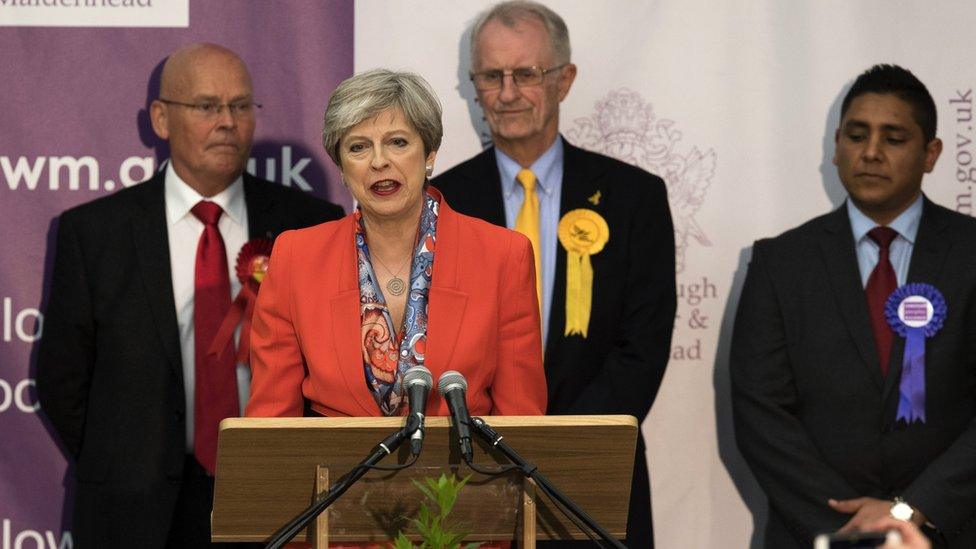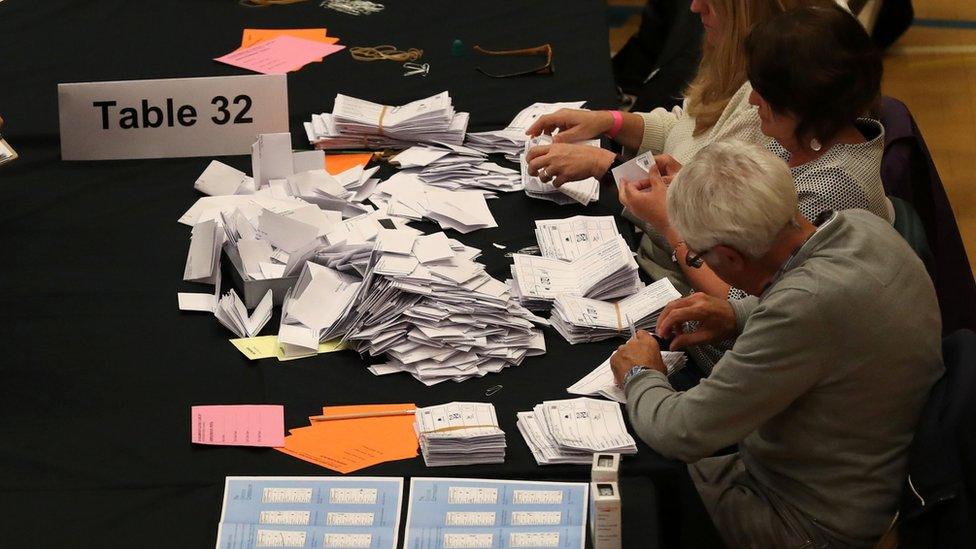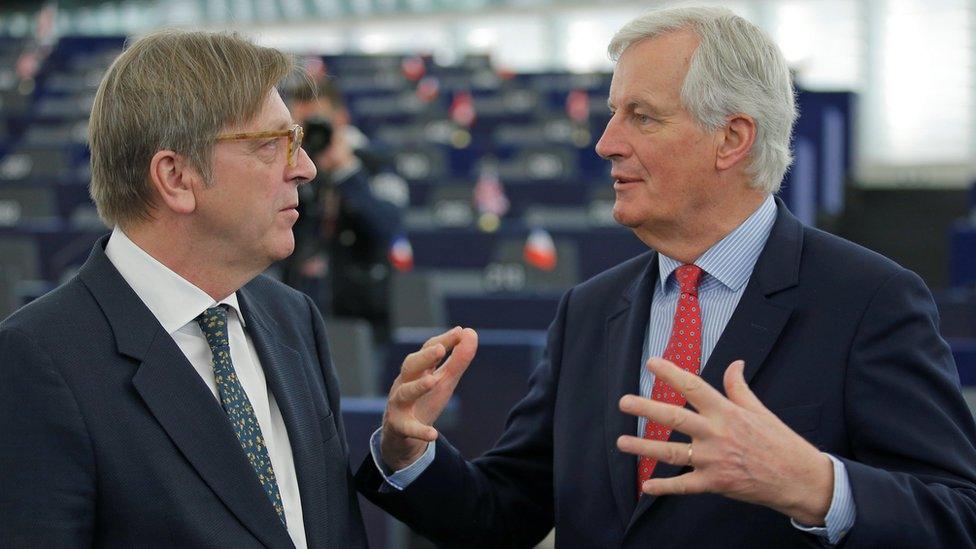UK election result: What does it mean for Brexit?
- Published

The result was far from the "strong and stable" position that Theresa May wanted
So what does the UK political upheaval mean for Brexit negotiations, slated to start in 10 days' time?
And does the hung parliament indicate that a hard Brexit, a softer Brexit or a cliff-edge Brexit (where there's no deal and the UK simply "falls out" of the EU) becomes more likely?
All questions redirected firmly today by Brussels back to the Dover side of the Channel.
The ball is very much in Britain's court.
Brexit - to state the obvious - has been driven by Britain all along.
Almost a year ago, the UK voted to leave the EU. Since then it has been riven by divisions between Leavers and Remainers, and between fans of so-called hard Brexit - where the UK leaves the EU single market and the customs union - and a softer Brexit, where the UK maintains the benefits of those associations.
It was the British government that delayed the possible start of face-to-face Brexit negotiations, by calling a snap election. And it is the new British government that can say, again, it needs more time, s'il vous plaît.
EU negotiators ready
The EU position is that it never wanted the UK to leave, but since Brexit is happening, it is ready and waiting.
While the UK has struggled internally with political turmoil ever since its referendum, Brussels has had almost 12 months to quietly get its Brexit ducks in a row and ensure a unified and detailed negotiating position, on behalf of the 27 member states, the European Commission and the European Parliament.

The results have shown again how politically divided the UK is
Theresa May called the general election, she said, hoping for a strong mandate, to improve her hand at the Brexit negotiating table.
This plan has backfired horribly.
But Brussels is not rubbing its hands with glee. It wants Brexit done and over with. Yesterday.
The EU has plenty more headaches to deal with: ongoing migration and eurozone problems, security concerns about Russia and an unpredictable US president... to name but a few.
UK election result: How the world reacted
Election 2017: Key points at-a-glance
What the election result means for Brexit
Brussels doesn't care what political flavour the new UK government has, it just wants a stable UK government, with a secure prime minister at its helm, who will stay in place for the duration of the negotiations and who won't waver and U-turn after agreements are made.
A wobbly British premier, unable to make tough decisions and sell them at home, increases the possibility of no Brexit deal at all - the so-called cliff-edge scenario - and that would hurt both the EU and UK badly.
Banks, businesses, ports and flights, the politically sensitive and economically significant Irish border, EU citizens living in the UK, UK citizens in the rest of the EU, UK healthcare - the list is endless UK-side.
The EU's pressing concern is to get the UK to honour long-term financial commitments before it leaves, otherwise there'll be a yawning hole in Brussels' multi-annual budget.
EU unity - currently so evident on the Brexit question - would evaporate in a flash if member states suddenly had a cat fight over having to pay extra, or receive less money, should the UK walk out without stumping up a considerable sum.

Key EU players in Brexit: Michel Barnier (R) from France and Guy Verhofstadt from Belgium
On a day full of unanswered questions, one thing is certain: that clock is ticking.
The UK formally launched the Brexit process back in March. It now has only until March 2019 to secure a divorce settlement, never mind decide future EU-UK trade and other relations.
The later Brexit talks start, the less time there is to agree a deal.
The UK can always request an extension to the negotiations; it could also ask to cancel the process and return to the EU fold - though no one in Brussels believes that likely to happen. But both those scenarios require unanimous approval by the 27 EU countries and the European Parliament.
Theresa May's dream of providing strong and stable leadership is in tatters.
But the political disarray in the UK has helped the EU in some quarters. It has dampened (though not extinguished) Eurosceptic rhetoric across the continent. And determination to protect the EU in a Brexit deal has united normally fractious EU member states - for now.
Today, after so many of its own crises, the EU is feeling stronger and more stable than it has in a long time, thanks to Brexit.